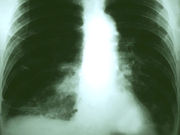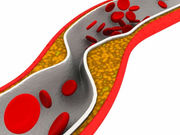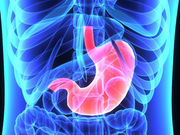Meth Use Tied to Higher Risk of Stroke in Younger People
Predominately hemorrhagic strokes associated with methamphetamine use
Tablet Use Encourages Patients to Explore Diabetes Risk
Replacing magazines with tablets can help patients learn about diabetes risk, take preventive action
Vitamin B6, B12 Supplements May Up Risk of Lung Cancer in Men
Increased odds only seemed to affect men or male smokers
Cost-Effectiveness of PCSK9 Inhibitors Called Into Question
Researchers say price would have to be between $4,000 and $5,000 per year to be cost-effective
Collaborative Communication Could Improve HTN Rx Adherence
Clinicians in low-income neighborhoods should ask about employment, relationships, researchers say
Day-Supply of Opioid Rx Factor in Likelihood of Long-Term Use
Doctors should prescribe for the minimum numbers of days, researchers say
Leukomelanoderma After Hydroquinone Use Described
Two cases documented in patients taking hydroquinone at a concentration of 7 to 10 percent
Once-Yearly Counseling Tied to More Physical Activity in T2DM
Increase in light and moderate-to-vigorous physical activity and reduction in sedentary time
Nurse-, System-Related Factors Analyzed in Wrong-Patient Events
In 77 percent of wrong-patient incident reports, the process of identifying the patients was not described
Females Show Better Response to CRT in Esophageal Cancer
Females more often had complete, nearly complete pathologic response to induction tx; less recurrence



















